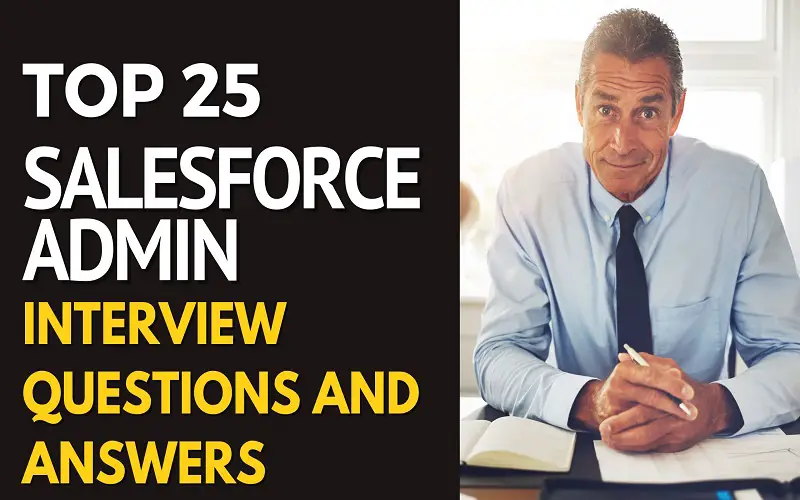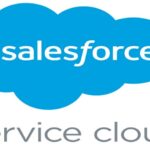Technology-based interviews can be challenging, especially when you are required to show your mastery of different software, tool, and frameworks that you will encounter in your work. Therefore, it is usually important to prepare well in advance in anticipation of the questions you are likely to be asked.
This article will look at Salesforce admin interview questions. A Salesforce administrator, popularly known as a Salesforce admin, is usually expected to work with stakeholders in defining system requirements and customizing the Salesforce platform. Given their role in the workplace, which is sometimes bigger than system administrators, you should be prepared for several technical questions. Take a look at the following:
1. Why Are You Interested In This Role?
I have always wanted to try something different. I am a Computer Scientist with extensive experience using Salesforce. I want to branch from the wider Computer Science and narrow it down to Salesforce administration which I am confident I can manage. A company of your caliber will also be a plus to my career since I will get to obtain insightful experience that will come in handy in my future endeavors.
I am looking forward to the challenges that this job will bring forth. I can’t also wait to interact with your able and highly experienced professionals.
2. What Are The Roles Of A Salesforce Admin?
A Salesforce administrator is charged with several roles. My main responsibilities include managing all Salesforce roles, profiles, groups, workflows, and sharing rules; ensuring that Salesforce products and systems are performing optimally, and performing optimized integration by configuring and upgrading all Salesforce systems. I also look into user support ticket issues, offer ongoing user training and create the needed training materials, support my team members, collect requirements from users and stakeholders and monitor how different users adopt Salesforce tools in the organization. It is also worth adding that I oversee everything to do with user and license management.
3. Mention The Qualities That A Salesforce Admin Needs To Be Successful
A Salesforce administrator should have several qualities owing to their role in the workplace. One must have a proven work experience as an administrator or an equal role, detailed knowledge of the relevant product and different functionalities, the ability to create and maintain different Salesforce databases, and experience in maintenance of the relevant systems. As for attributes and skills, an administrator must be a good team player and an excellent problem-solver.
4. What Are The Main Challenges That You Met In Your Last Role? How Did You Overcome Them?
I had a successful experience in my last role. I got my first mentor, an expert Salesforce admin who held my hand and helped me learn all the basics about Salesforce, given that it was my first interaction with administration. However, when I took over from him, I experienced resistance from the older team members and stakeholders, given that I was relatively young. Therefore, I had to work extra hard to prove my worth. I want above and beyond to step into the shoes of the outgoing Salesforce administrator, who had been my mentor for a while. Luckily, I surpassed him and won all team members’ respect and collaboration. I had an amazing experience after that.
5. Describe Your Daily Routine
My days are the same, given that the roles don’t change as much. My routine mainly involves ensuring that all Salesforce systems and products are performing optimally, managing different Salesforce elements such as the roles, workflows, and groups, sharing rules and profiles, and configuring and upgrading Salesforce systems to achieve optimized integration. I also take time on most occasions to identify and collect user and stakeholder requirements, resolve user support tickets, offer ongoing training to users and create all the relevant materials needed to master Salesforce.
6. Briefly Describe Your Experience
This is my third year as a Salesforce administrator. I have worked in different industries and establishments, helping support and sales teams in their work. I have also had the chance to work with a Fortune 500 company, albeit in a different role. Before becoming an administrator, I worked as a freelance computer scientist helping organizations manipulate data and get the best out of their systems. I am glad that my computer scientist experience has helped me in my career as a Salesforce administrator.
7. Mention The Strategies And Mindsets Needed For This Role
The best strategy for any Salesforce admin is to prioritize and practice constant monitoring to ensure that all the systems and processes are working as planned. One must stay a step ahead of the different systems and processes to anticipate future errors. As for the right mindset, a Salesforce admin should always prepare for whatever may come their way by having a productive mindset. Salesforce administration entails lots of work that one should be ready to tackle.
8. What Is The Biggest Challenge That You Foresee In This Role?
I definitely expect a huge workload and will have to adjust fast, given that I have mostly worked for startups and medium companies. However, I am confident I will manage working here, given my love for challenges and new environments. I am ready and willing to work extra hard to help the sales and support teams achieve their targets. I will also ask for help or guidance, given that I believe in teamwork and being there for each other in the workplace. I am looking forward to a fruitful experience in this company.
9. How Do You Stay Motivated In This Job?
I normally keep my eyes on the target at all times, which keeps me motivated and ready to tackle any challenges that may come my way. I also come up with goals and targets that must be met whenever I join a new workplace, keeping me on my toes. Lastly, I love challenging myself and breaking my records. Therefore, I am always working towards achieving better results. I am confident I won’t struggle with motivation once I join this workplace.
10. Mention A Time That You Failed In This Role. What Lesson Did You Learn?
This is my first try at Salesforce administration; therefore, I cannot point out any specific experience. However, I have had a number of bad experiences in some of my ventures that I can narrate. While working as part of a marketing team, I let a small disagreement turn into a huge conflict that almost threatened our team’s productivity. Had I not stepped in to salvage the situation when I did, it would have been unresolvable. This experience taught me the importance of swiftly resolving conflicts in team settings since small agreements can blow out of proportion.
11. Why Do You Think You Are The Most Suited Candidate For This Role?
I have worked for both startups and established corporations and therefore know how to go about my role in a way that can benefit them all. I also have extensive experience using Salesforce and other related tools and software that I am willing to apply to this company. Lastly, I have several skills that will definitely come in handy in my work. I am an excellent team player and problem solver, which are important qualities for a Salesforce administrator.
12. Mention Your Greatest Achievement
As the Salesforce administrator in my former workplace, I helped the marketing team improve their marketing efforts by 70%, attracting clients and thousands of referrals. With different stakeholders, I managed to turn around a company on the verge of closing its doors due to losses occasioned by poor customer relations and turnout. I was named the best employee of the year twice in a row, an achievement I don’t take for granted.
13. Can You Work In Team Settings?
I am an excellent team player, given that my role entails working with different stakeholders in defining system requirements and customizing the Salesforce Platform. I have extensive team working experience, as this is my tenth year in this field. I will easily fit into your current team if I get this chance.
14. Can You Define A Profile And Role?
Profiles and roles determine the records accessible to users and their permissions regarding them. Profile, in particular, controls the objects and fields accessible to users. They also control edit, create and delete permissions. On the other hand, roles define sharing information with users even though they are optional. They also determine the records a user can view, preventing confidential information from falling into the wrong hands.
15. As An Admin, You Are Charged With Permission Controls. What Do You Normally Use?
I normally rely on the permission sets, which are profile add-ons, to heighten users’ permissions and allow them to access what their profiles can’t allow. These sets save me from having to create separate profiles to grant exclusive permission to users. Permission sets can also be grouped by job functions through permission set groups, simplifying administration due to consistency.
16. Are Public Groups Related To Roles?
Yes. In fact, permission groups are more like add-ons to roles, just like permission sets to the profile. As an administrator, I am empowered to create groups of users when needed to share records with them. These users are generally named individually or by their roles. I mostly use public groups to share records with same-level users. Therefore, whenever I want to share records with managers, I will create a public group and add them.
17. What Is The Difference Between A Queue And A Public Group?
A queue is similar to a public group, given that it consists of ad hoc groups of users named individually or through roles. However, instead of sharing purposes, they are used for ownership. One of the most common uses of queues is assigning cases, where one can easily be assigned to a given team targeting whoever is available. Both custom and standard objects come with queues, which explains their popularity.
18. What’s Your Primary Declarative Automation Tool?
My primary declarative automation tool is Flow, which is empowered to perform various functions, including creating, deleting, and updating records. It can also send emails, call apex codes, send outbound messages and launch other flows. With it, I can build and customize screens for user interaction, greatly improving user experience. To trigger flows, I normally use schedules, and record changes or screens. The Flow Trigger Explorer, which Salesforce recently launched, is also important as it allows me as an administrator to schedule the running of flows by determining their order. It also comes in handy in flow orchestration.
19. What Can You Say About Workflow Rules And Process Builder?
Workplace rules and process builders were declarative tools that Salesforce did away with not long ago. The two were replaced by Flow, which combined all their functions, making Salesforce lightweight. Even though existing workflow rules and processes were not hampered, users should create all declarative automation using Flow. Tools aimed at helping administrators migrate older automation to Flow are also in the works and will greatly revolutionize our experiences as admins. All in all, I understand everything about workflow rules and process builders, given that I have worked for entities that have existing workflow processes and rules.
20. What Happens When There Are Several Flows On One Object?
The introduction of Flow revolutionized the operation of Salesforce. Multiple flows on an object used to be a problem during the reigns of Workflow Rules and Process Builder that have since vanished. As the primary declarative automation tool, there is a possibility of triggering several flows on the same object. The Trigger Flow Explorer, which was recently introduced, allows us admins to determine the order of running of separate flows. The orchestrator also helps us create several-user, several-step automation.
21. What Do You Understand By Guest Users?
Guest users are not usually part of the organization. They don’t normally have user accounts, even though they are allowed to create and edit records. Most of the time, guest users are referred to as unauthenticated users since they don’t have to log in like everyone else in the organization. Even though we have to consider lots of things and create several limitations, empowering guest users to help to solve several use cases economically since their licenses do not come with a price tag. When guest users, screen flow and experience cloud are combined, I can solve several use cases as an administrator.
22. Differentiate Managed And Unmanaged Packages
All applications installed from the AppExchange in Salesforce exist as packages, which can be defined as everything needed for the right functioning of an application. When it comes to the existence of managed and unmanaged packages, it is the job of a creator to decide. Most unmanaged packages act as the admin’s own creations once installed, whereas, for managed packages, it becomes impossible to edit a number of features. A provider can also easily upgrade a solution in managed packages, while for unmanaged packages, the relevant one must be uninstalled from the organization and a new version reinstalled from AppExchange. Lastly, customization of codes and metadata is allowed in unmanaged packages, which is impossible in managed packages.
23. Define Record Types And List Views
Record types are tools we use to create different independent records for every object. They normally determine the available picklist values, page layout, and different business logic. On the other hand, list views are queries that an admin presents to users so that they can review interesting records. They are usually revealed by clicking on a tab and can exist through lightning components on different pages. It is also possible to filter these views and display the needed columns.
24. Differentiate A Page Layout And A Lightning Page
Lightning record pages are usually much more detailed than page layouts, given that they display different things in a lightning experience. Whereas page layouts are represented by lightning components displaying the details and related list components, the lightning page controls all the remaining lightning components. The components can also be made to be conditionally visible thanks to the lightning page. Examples of lightning pages include home and app pages which enhance user experience thanks to elements such as lightning screen flows and charts.
25. Define A-Data Loader And A Custom Metadata Type
The data loader has a similar role as the import wizard and exporting reports tools. This third-party tool allows the importation and exportation of data in bulk. It is a free tool that can be easily downloaded. It normally comes with a variety of options.
Custom Metadata Types are important tools for admins. They resemble custom data objects and form part of the organization’s data, unlike custom objects that store data. Examples of metadata types are sales goals and blackout dates.
Conclusion
These are some of the questions you should expect in your upcoming Salesforce administrator interview. Make sure you have the best answers to increase your chances of landing the job. We also normally advise our readers to pay attention to their grooming and articulation as the two come in handy during an assessment. All the best in your interview!




